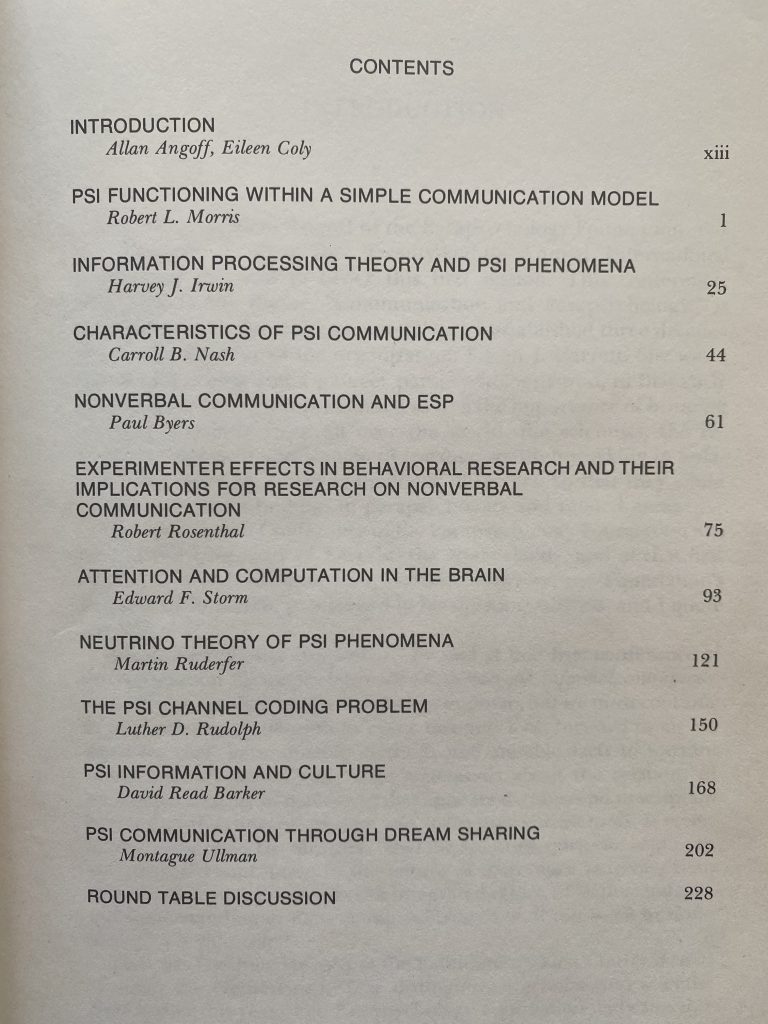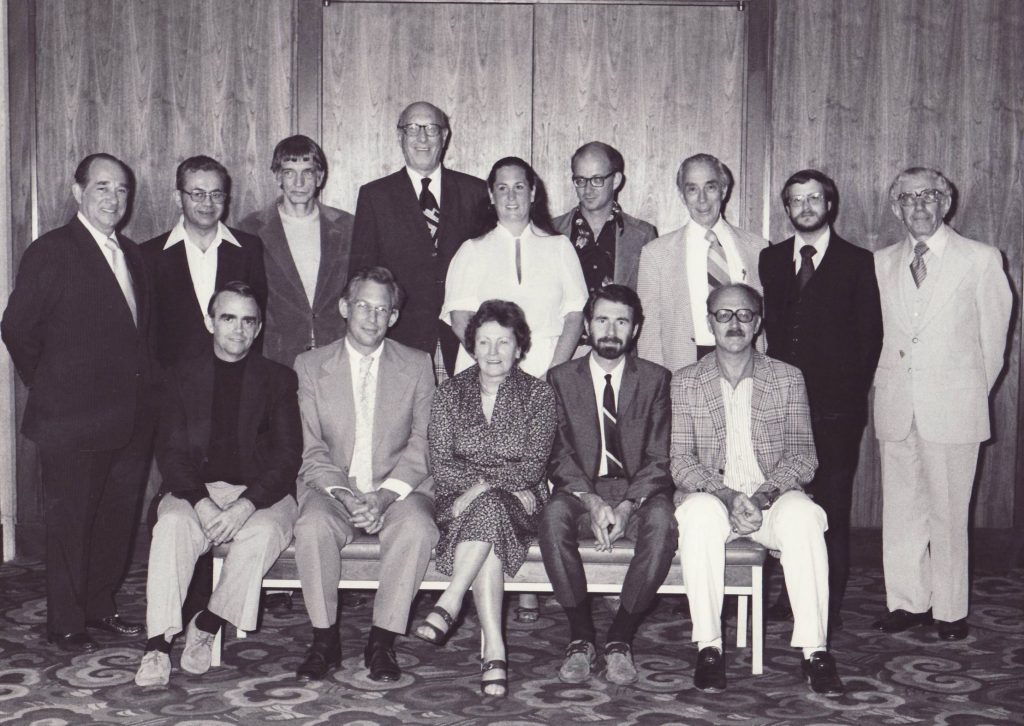
Recently while hosting researcher Peter Bancel at the Garrett library I came across quotations from Eileen J. Garrett from the Parapsychology Foundation Newsletter, Volume 6 No 6, Nov/Dec 1959. This provided me food for thought. In an article “Foundation President Outlines Future” she wrote, “Images and symbolism, which reveal much about the subconscious mind, may enable us to build a bridge between depth psychological studies and areas of research that have, so far, been limited to parapsychological inquiries in their restricted sense.” She went on to state, “With regard to the survival question, generally, it must be viewed side by side with a continued study of the phenomena of mediumship. Such a study must utilize the most advanced psychological testing methods to gain access to the role of basic personality structures of mediumship. Instrumental in an understanding of virtually all psychic phenomena is the problem of communication…It now becomes our duty to search to the very roots of the problem of communication. This may involve new conceptions regarding images, conceptual imagery, and dream symbols which are a language that we do not yet fully comprehend. A wider approach to communication, in its special meaning to parapsychological research can not fail to throw light upon areas outside parapsychology as well.”
As I contemplated her statements I recalled that in 1979 PF had held one of our International Conferences in Vancouver, Canada “Communication and Parapsychology” which I co edited with Betty Shapin after being fortunate to attend myself. Fortunately that volume remains in print and is available here.

I pulled it from the shelf to refresh my memory of a most stimulating conference and rediscovered a diverse roster of presenters as you can see by the table of Contents. While flipping the pages at random here is just a soupcon of the quality of commentary and concepts that caught my eye to be contemplated upon reading the Proceedings;
David Read Barker in his paper “Psi Information and Culture” stated that “the role of culture in the transmission or creation of psi information is an almost empty frontier in parapsychology. Culture, defined briefly as patterns of learned behavior is the distinguishing characteristics of humans. Psi information is defined as information not apprehended through known sensory channels. The apprehension, commonly termed ESP, occurs during a psi communication. Animals, as well as humans, have demonstrated ESP, indicating that culture is a sufficient, but not necessary requisite for psi experiences. ESP is supra-cultural; humans inherited it through biological evolution. What is the role of culture?…This paper reports a review of the ethnographic literature of a worldwide sample of 68 non-Western societies, undertaken to identify all the authoritative accounts of ESP in these cultures and thereby begin a systematic and cumulative examination of the huge literature of anthropology.”

Left to right seated: Rudolf, Barker, E.Coly, Irwin, Storm
Missing- Rosenthal
The respected and very dear member of the PF family, Montague Ullman presented “Psi Communication through Dream Sharing” which of course he expanded over the years within his famous dream work. I well remember him as a child visiting the PF offices when he was with Stanley Krippner doing early dream work, utilizing Garrett as one of their subjects, which was eventually transferred to Maimonides Hospital. In this early paper, Monte writes “Psi has long been considered an unconscious form of communication that often undergoes some degree of distortion before reaching consciousness…This paper reports on a pilot study that was designed to explore the use of dream work in a small group setting as a way of establishing natural psi linkages.”
As I close this month’s ramble I am proud to acknowledge the “seeds” that Garrett planted that my mother Eileen Coly and I “watered” in hopes that my daughter Anastasia Damalas can in time continue to nurture if we manage to find financial support for our efforts.
I will close with another nugget of wisdom from Dr. Ullman from page 73. “I think a good many parapsychologists don’t like words like “paranormal” and even “Parapsychology,” and come up with neutral terms for something we don’t yet understand…Let’s look at all our disciplines in terms of existing mysteries and see how psi fits in. Perhaps from a historical point of view parapsychologists at first had to say we’re different, but the time has come to say we’re no different and move on from there.”
So let’s keep movin’ on !!!